Nearly 70% of Knowledge-Based Companies' Experts Emigrating
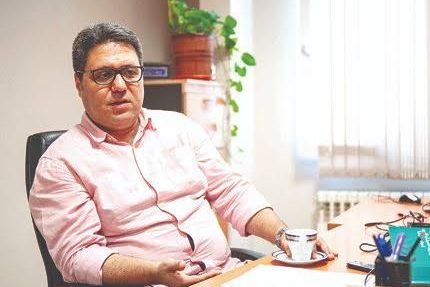
Iran's Migration Observatory has once again raised the alarm about the ongoing trend of brain drain.

Iran's Migration Observatory has once again raised the alarm about the ongoing trend of brain drain.
Bahram Salavati, the director of the Observatory highlighted the regime's lack of attention towards the issue and revealed that the observatory's funding has been cut, and an order to vacate their building has been issued.
"We have spoken many times about the migration process of elites…, but unfortunately we have been condemned," said Bahram Salavati expressing his frustration over the lack of support for their efforts to mitigate the brain drain phenomenon.
Ali Hosseini, the Deputy Director of Human Capital Development of the International Science and Technology Interaction Center, also admitted the lack of efforts by the regime to combat the reduction of migration.
Hosseini also raised concerns about the potential return of seven million Iranians living abroad, questioning whether the country has the necessary capacities to absorb and effectively utilize its valuable human resources.
However, according to a survey conducted by the Iranian Migration Observatory, the desire to return to the country is diminishing, with only 14% of Iranians abroad having a definite desire to come back. A significant 62% expressed no intention of returning, while 24% were undecided. Moreover, over 90 percent of respondents did not believe in the government's promises regarding the utilization of the potential of Iranians living abroad.
In March, the institute's research claimed that the UAE hosts the highest number of Iranians living abroad with over 450,000 Iranian-born residents, followed by the US, Canada, Germany, Turkey and the UK, as Iranians seek a better quality of life.
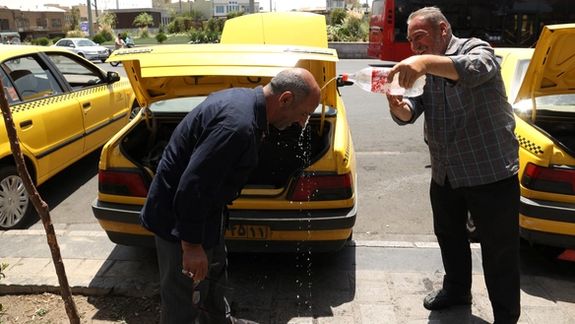
Iran’s two-day shutdown was announced as a measure to reduce health risks, but many believe it is a ruse to distract from electricity, gas and water shortages.
The Iranian government has declared a national holiday on Wednesday and Thursday, with speculations that it could extend to Saturday, claiming that the move is to safeguard the well-being of its citizens as temperatures soar.
Pedram Pakain, the spokesperson of the Health Ministry, said the holidays may be extended due to the heatwave, a statement reiterated by Interior Minister Ahmad Vahidi.
Social media, where Iranians still freely voice their thoughts on the truths behind the regime's trickery, saw many voicing concern that the national holidays could be a prelude to raise fuel prices, an impending eventuality that the government keeps postponing in fear of its consequences.
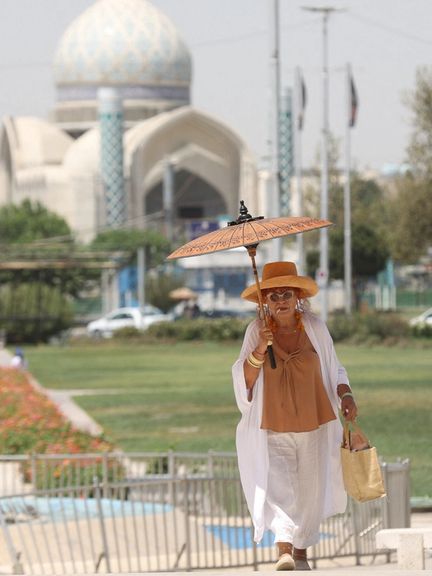
Iranians have seen far hotter days and no shutdowns in the past. Reformist activist and former political prisoner Hadi Mehrani shared a letter by Iran’s Prosecutor-General Mohammad Jafar Montazeri, who has ordered prosecutors across the country to summon leaders of Women, Life, Liberty protests – the ones no longer in prison – to warn them against organizing fresh protests ahead of the anniversary of the death of Mahsa Amini that sparked the uprising in September. He suggested that the holidays may be related to the mass call-out.
Payam-e Ma newspaper cited an informed yet unnamed source from the Energy Ministry as saying that the reason behind the shutdown was the country's electricity shortages. The constant rise in temperatures and decrease in rainfall across the country in the last decade have made electricity supply a challenge during peak consumption periods that happen in summers in Iran. In July, Iran’s electricity usage hit a record of 72,500 megawatts, increasing strain on power grids that were already struggling to meet demand.

"High temperature and increased electricity consumption in the past days have led the hydroelectric power plants of Karun-3 and Karun-4 dams – on the Iranian river with the highest water flow -- to produce electricity beyond their nominal capacity," the daily said. The power plants were reportedly generating electricity for more than 20 hours per day in the past several days, leading to a "depletion of water resources," which caused the plants to "temporarily cease production."
Power plant capacity and fuel supply are both inadequate to meet demand, and blackouts regularly happen in summer. Even so, Iran exports electricity to Iraq. In dire need of significant investment, Iran's electricity sector has failed to realize its annual growth plan for several years in a row, while consumption continues to grow, in part driven by extremely low prices.
The country needs at least five to seven percent electricity generation growth annually to address the increase in domestic demand. It has been an ongoing problem for the country which has one of the biggest natural oil and gas reserves in the world. In 2021, mass protests erupted after nationwide blackouts. With current tensions and an ongoing economic crisis, another mass breakdown could revive the unrest which has swept the country since September.
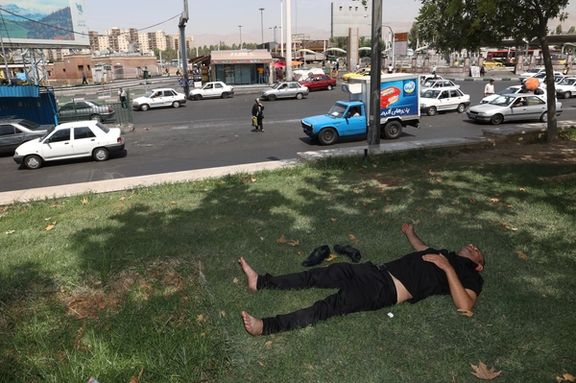
Iranian environmentalist Kaveh Madani -- the former deputy head of Iran's department of environment who heads the United Nations University Institute for Water, Environment and Health, reacted to the theories in a thread of tweets on Wednesday, stating that Iran’s bankruptcy of water, electricity, and gas cannot be solved by simply shutting down the country.
“Even if you build hundreds of dams, without proper management, the water will eventually run out!” he said, explaining that the problem of “Iran’s water, gas and electricity bankruptcy cannot be solved by shutting down just as the problem of dust and air pollution was not solved by shutting down.”
Madani added that the roots of Iran’s gas bankruptcy bear striking resemblance to the roots of its water bankruptcy but there is a crucial difference in the water and energy sectors: Iran's water is naturally limited, but the country holds one of the world's largest natural gas reserves.
Echoing the same argument, Nikahang Kowsar, a water issues analyst, told Iran International that a lack of planning for the use of renewable energy and disregarding climate change in the regime’s development policies have brought Iran to a point of no return.
No matter what the reason behind the shutdowns, Iranians are worried. Worried that it may be a ploy to avert their attention from something bigger and worried that regular shutdowns will be their new normal because they have seen that the regime is incapable of solving such problems for good.
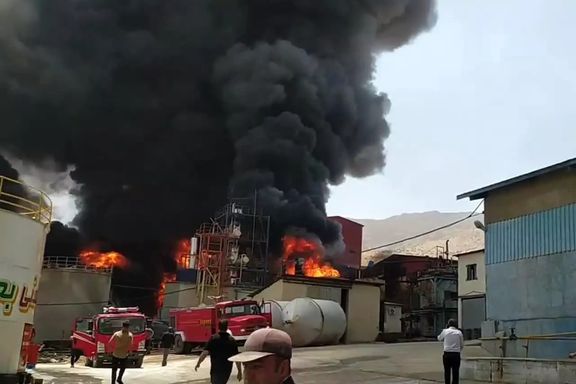
A massive fire erupted at an industrial zone in Doroud, southwest Iran on Wednesday leaving two people hospitalized.
An official from the Lorestan provincial authority said the fire occurred in the tanks of the Gohar petro-refinery with 16 fire trucks dispatched to the scene. The cause of the blaze remains unknown.
Farhad Ziviar, the governor of Lorestan said all available equipment in Lorestan province, as well as neighboring provinces such as Markazi were mobilized to control the fire. Speaking from the scene, he said there were concerns about the spread of the fire to the gasoline tanks located in the vicinity.
In recent years, there have been a number of explosions and fires near Iran's military, nuclear, and industrial facilities.
In March, there was a large fire at three warehouses belonging to a home appliances manufacturer and in January, a huge fire broke out at an Iranian military industry factory in Esfahan in what was believed to be a suspected drone strike. Iran blamed the strike on Israel though the claims were never confirmed.
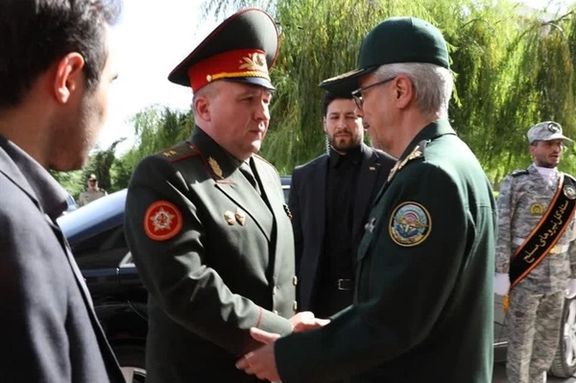
Iran and Belarus signed a defense cooperation deal, prompting the Iranian Armed Forces' General Staff to stress the importance of boosting mutual “defense ties”.
During a meeting with Viktor Gennadievich Khrenin, the Minister of Defense of Belarus, Mohammad Bagheri emphasized that global power shifts necessitate expanding security and military relations between Iran and Belarus.
The two sides also discussed the establishment of a joint commission for military cooperation.
Earlier, on Monday, Minister Khrenin signed a memorandum of understanding on defense cooperation with Mohammad Reza Ashtiani, the Iranian Defense Minister, in Tehran.
Details of the agreement have not been disclosed by the authorities of either nation. However, the Institute for the Study of War, a Washington-based think tank, published a report indicating Belarus' involvement in the establishment of an Iranian drone manufacturing plant in the south, specifically in the Gomel region.
Iran has faced extensive international criticism for supplying hundreds of Shahed-type kamikaze drones to Russia, reportedly used to target civilian infrastructure and residential areas in Ukraine. Additionally, American intelligence agencies have raised concerns about the construction of a drone factory in Russia with the assistance of the Islamic Republic.
Iran has supplied hundreds of drones to Russia since mid-2022, angering the United States and its key European allies who have imposed sanctions on a host of companies and individuals involved in their production and shipment to Russia.
Belarus is a key ally of Russia in its actions in Ukraine and a vital base for a portion of the Russian army and military mercenaries from the Wagner Group.
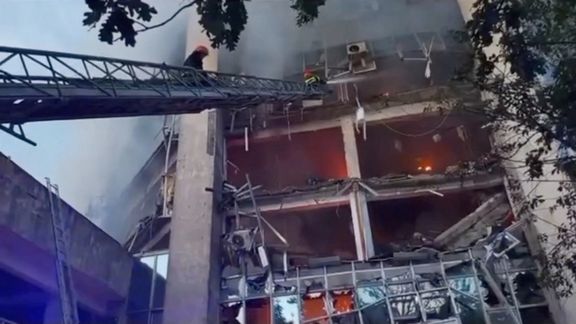
Moscow’s military launched over ten Iranian-made Shahed drones against Ukraine’s capital and several others at a grain export terminal in the south of the country.
The attacks on Wednesday destroyed buildings in the port of Izmail, near NATO member Romania, and halted ships in their tracks as they prepared to arrive there to load up with Ukrainian grain in defiance of a de-facto blockade Russia reimposed in mid-July.
"Russian terrorists have once again attacked ports, grain, global food security," President Volodymyr Zelenskiy said on Telegram.
Chicago wheat prices rose by nearly 5 percent following the attack due to concern about a hit to global supplies from Ukraine.

More than 10 drones launched against Kyiv were all shot down according to Ukraine’s military but falling debris caused fires and damage to residential areas.
Governor Oleh Kiper of the southern Odesa Oblast said that some of the Iranian drones flying toward the grain port were shot down but others got through inflicting heavy damage to grain exporting facilities. He appealed to Ukraine's partners to provide more air defense systems to defend against Russian strikes.
Iran has supplied Russia with hundreds of Shahed kamikaze drones since mid-2022 that have been extensively used against civilian and infrastructure targets.
The United States and its European allies have imposed several rounds of sanctions on Iran for the drone deliveries and warned Tehran to stop its arms supplies to Moscow. Iranian officials continue to deny sending the drones despite overwhelming physical evidence provided to Western government and media.

In the midst of a military exercise in the three contested islands of the Persian Gulf, the IRGC Navy Commander reiterated Iranian sovereignty.
Alireza Tangsiri advised regional states on Wednesday to avoid involvement in "divisive plans of extra-regional countries”.
The islands of Greater and Lesser Tunbs and Abu Musa in the Persian Gulf have been a longstanding territorial dispute between Iran and the United Arab Emirates.
During the exercise, Tangsiri did not explicitly name any specific country but referred to a joint statement made last month by Russia and Arab countries in the Persian Gulf supporting the UAE's claims over the islands.
Tangsiri called the islands "the honor of the great nation of Iran" and vowed to protect the Islamic homeland's territorial integrity.
The ongoing exercise showcased the presence of a special unit and a "600 km long-range missile for defending the islands' territory".
However, the UAE considers Iran's sovereignty over these islands illegal, adding to the complexity of the territorial disputes which has become an international geopolitical issue.
Like China did in December, Russia signed a statement with the Gulf Cooperation Council in early July challenging Iran's ownership of three islands.
Iranian Foreign Minister Hossein Amir-Abdollahian recently expressed deep dissatisfaction with Moscow's explanations regarding the joint statement, Russia one of the regime’s closest allies.
The revival of the dispute comes amid the Iranian regime's efforts to strengthen its relations with the likes of UAE and Saudi Arabia under President Ebrahim Raisi's leadership.